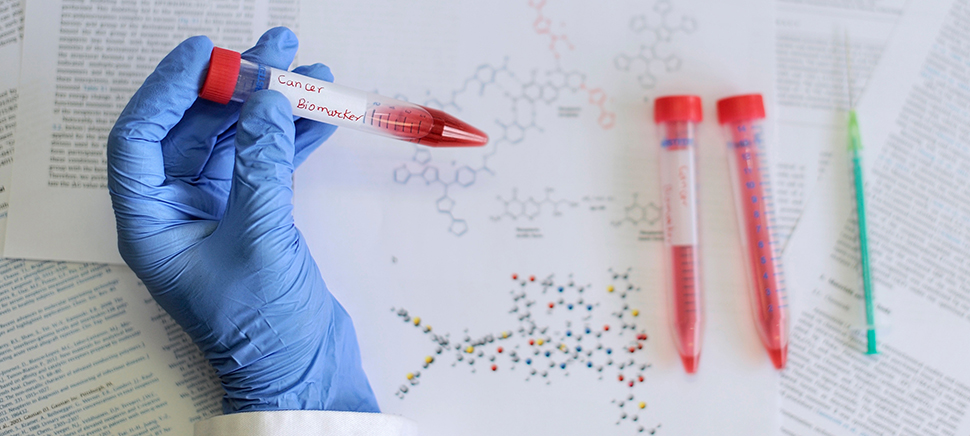
UNT and Polish researchers are working on a method for early cancer detection. Photo Courtesy The University of North Texas
Research teams from the University of North Texas and the Polish Academy of Sciences are collaborating to create a chemical sensor that could detect cancer at an early stage, according to a release from UNT.
Early detection greatly increases the chances of a successful treatment for the disease.
“Cancer, if detected and treated in the early stages is no longer a death threat,” Francis D’Souza, a University Distinguished Research Professor in UNT’s Department of Chemistry, said in the release. “However, early detection of several types of cancer is still a challenge, since tumors develop over a period of time without noticeable symptoms. One solution to this problem could be diagnostic tests available to everyone that could be performed at home on a regular basis.”
“Cancer, if detected and treated in the early stages is no longer a death threat.”
Francis D’Souza
According to the release, the chemosensor is a thin film of polymer that can detect the molecules of neopterin, a chemical compound that is found in the bodily fluids of humans.
Produced in the immune system, an increased presence of the chemical often is an indicator of a medical problem, the release said.
UNT said that even though the research is being conducted in Warsaw, Poland, under a grant from the National Science Centre, the polymer itself was created at the University of North Texas. The polymer film is still in the testing stages, the university said in the release.
You can find out more about the research here.
For a daily dose of what’s new and next in Dallas-Fort Worth innovation, subscribe to our Dallas Innovates e-newsletter.
R E A D N E X T
-
The investment was led by Advantech Capital, a PE fund based in China that focuses on TMT, pharmaceuticals, and healthcare. This combined with the support from the Cancer Prevention and Research Institute of Texas (CPRIT), which granted OncoNano $9.97 million last year, will support Phase 3 clinical trials for the biotech's technology that can diagnose and treat cancer with high specificity.
-
Southlake-based OncoNano Medicine uses pH-sensitive nanoparticle technology to "light up" cancer for real-time surgical imaging. The multi-year collaboration will seek to uncover new cancer therapies that can benefit from OncoNano's technology. OncoNano raised $50 million in Series B funding in June.
-
The Cancer Prevention and Research Institute of Texas awarded a $3.9 million grant to The University of North Texas Health Science Center (HSC) in Fort Worth to expand a program that aims to create more diversity in the medical and biomedical sciences fields.
-
UNT hopes its cloud-based computer program called RE-PLAN will be able to solve equitable distribution issues that often accompany a speedy rollout. The technology, which uses sourced data to allow public health agencies to craft response plans, will be dispensed with an urgency to target special demographics communities, like people who have disabilities, don't speak English, and don't have cars.
-
The Cancer Prevention and Research Institute of Texas (CPRIT) will convert previous grant awards to an equity investment. OncoNano uses pH as a biomarker to detect metastatic cancer. The technology "lights up" a tumor in imaging during real-time surgery.




























